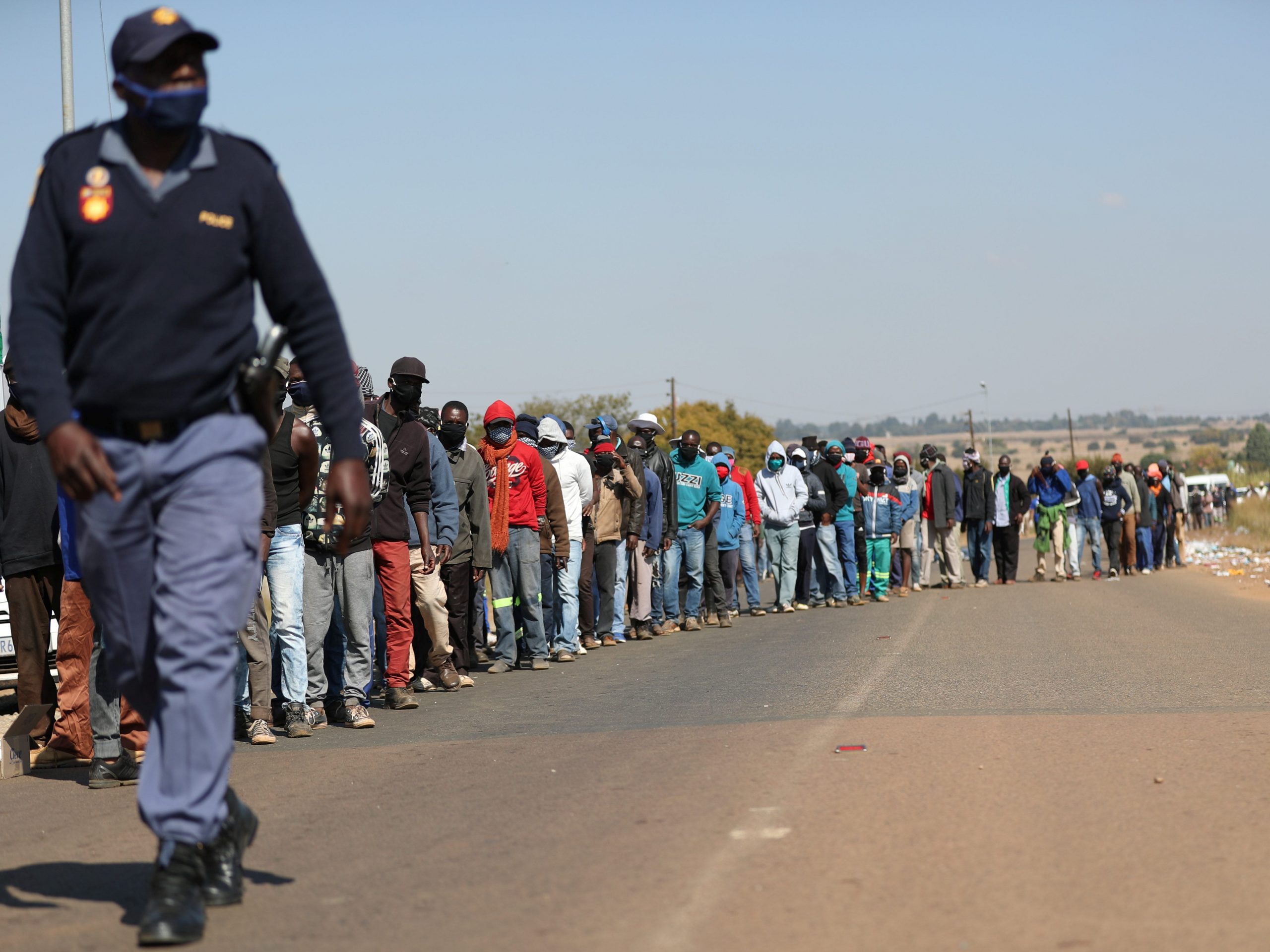
Reuters
- The coronavirus variant dominant in South Africa appears to be about 50% more contagious than the original strain.
- The Western Cape region took 107 days to reach 100,000 cases in the first wave of infections, compared to 54 days in the second wave, when the variant took hold.
- The variant has spread to 14 countries worldwide, but has not yet been identified in the US.
- Visit Business Insider’s homepage for more stories.
The coronavirus variant spreading in South Africa is 50% more contagious than the original strain, but not more severe, the country’s top infectious disease expert said Monday.
The figure comes from mathematical modelling that predicted what the infection rate would have been without new variants. Scientists then compared this model to current real-life figures.
In the Western Cape, for example, coronavirus has spread 50% faster than the model predicted, Salim Abdool Karim, head of South Africa’s COVID-19 ministerial advisory committee, said during a scientific webinar Monday.
The area took 107 days to reach 100,000 cases in the first wave of infections, but 54 days in the second, likely due to the new variant, Karim said.
Studies also suggest that natural antibodies – produced by the body to fight infection – are less effective, Karim added.
The variant, known as 501Y.V2, has spread to 14 countries worldwide, but has not yet been identified in the US.
A different variant first identified in the UK has reached the US, and is now in several states. Experts believe it is between 30 and 50% more infectious.
The variant in South Africa was first detected in Nelson Mandela Bay in samples dating back to the beginning of October 2020. South Africa experienced a sharp increase in the number of people infected with coronavirus during November, and reported 501Y.V2 to the World Health Organization on December 18.
"We are now seeing today more cases and more deaths than we ever on any day saw during the first wave. This rapid rise in cases is also accompanied by hospital admissions. Most unfortunately, we also see the deaths rising," Karim said.
There is no evidence to suggest the variant is more deadly, Karim said - but a faster-spreading variant leads to more infections and therefore more deaths.
More than 1.3 million people are infected with coronavirus in South Africa, the highest of any African nation, according to Johns Hopkins University. More than 37,000 South Africans have died from COVID-19.
Most new cases are caused by the 501Y.V2 variant.
"In our latest data from KwaZulu-Natal, 59 out of the 61 sequences came up with the new variant," Karim said. "It is now the predominant virus spreading in our midst."
Mutations have significantly changed the virus' spike protein, the part of the virus that it uses to infect human cells.
The spike protein has now rotated about twenty degrees and can therefore get more deeply into the binding site on cells, said Karim.
"This means that the virus can bind better to the human cell, and that's what enables it to become a more efficient virus in the way it transmits", he said.
